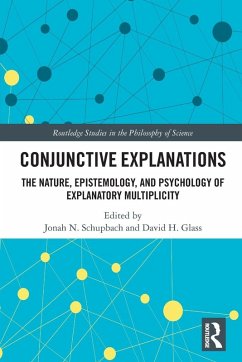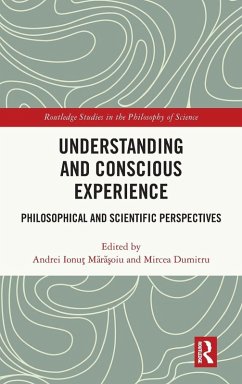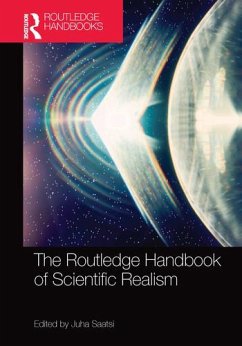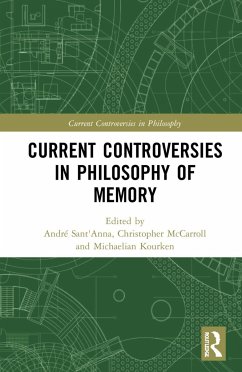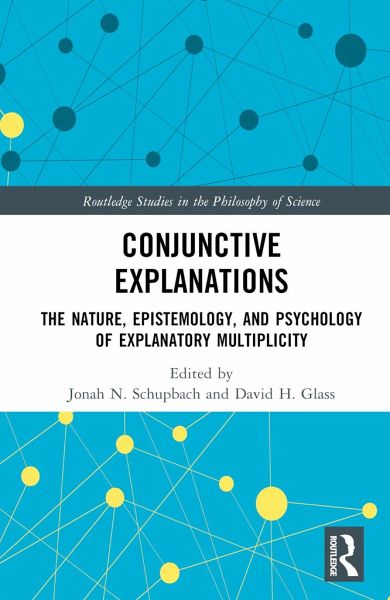
Conjunctive Explanations
The Nature, Epistemology, and Psychology of Explanatory Multiplicity
Herausgegeben: Schupbach, Jonah N.; Glass, David H.
Versandkostenfrei!
Versandfertig in 6-10 Tagen
154,99 €
inkl. MwSt.

PAYBACK Punkte
77 °P sammeln!
Philosophers and psychologists are increasingly investigating the conditions under which multiple explanations are better in conjunction than they are individually. This book brings together leading scholars to provide an interdisciplinary and unified discussion of such "conjunctive explanations."The book starts with an introductory chapter expounding the notion of conjunctive explanation and motivating a multifaceted approach to its study. The remaining chapters are divided into three parts. Part I includes chapters on "The Nature of Conjunctive Explanations." Each chapter illustrates distinc...
Philosophers and psychologists are increasingly investigating the conditions under which multiple explanations are better in conjunction than they are individually. This book brings together leading scholars to provide an interdisciplinary and unified discussion of such "conjunctive explanations."
The book starts with an introductory chapter expounding the notion of conjunctive explanation and motivating a multifaceted approach to its study. The remaining chapters are divided into three parts. Part I includes chapters on "The Nature of Conjunctive Explanations." Each chapter illustrates distinct ways in which explanatory multiplicity is motivated by a careful study of the nature and concept of explanation. The second part ("Reasoning About Conjunctive Explanations") includes chapters on the epistemology and logic of conjunctive explanations. Here the contributors propose and evaluate various norms for reasoning correctly about and to conjunctive explanations. Part III concerns "The Psychology of Conjunctive Explanations," with contributions discussing conditions under which humans entertain and hold multiple explanations of single explananda simultaneously and the cognitive limitations and capacities for doing so.
Conjunctive Explanations will be of interest to researchers and advanced students working on explanation in philosophy of science, epistemology, philosophical logic, and cognitive psychology.
The book starts with an introductory chapter expounding the notion of conjunctive explanation and motivating a multifaceted approach to its study. The remaining chapters are divided into three parts. Part I includes chapters on "The Nature of Conjunctive Explanations." Each chapter illustrates distinct ways in which explanatory multiplicity is motivated by a careful study of the nature and concept of explanation. The second part ("Reasoning About Conjunctive Explanations") includes chapters on the epistemology and logic of conjunctive explanations. Here the contributors propose and evaluate various norms for reasoning correctly about and to conjunctive explanations. Part III concerns "The Psychology of Conjunctive Explanations," with contributions discussing conditions under which humans entertain and hold multiple explanations of single explananda simultaneously and the cognitive limitations and capacities for doing so.
Conjunctive Explanations will be of interest to researchers and advanced students working on explanation in philosophy of science, epistemology, philosophical logic, and cognitive psychology.



